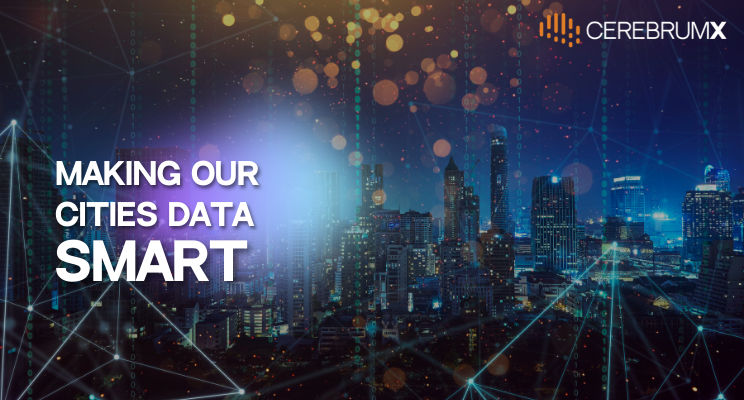An IoT Connected Car is a vehicle that utilizes an internet network to communicate with outside systems with the help of hardware, software, and sensors. The cities we live in are destined for a great future where shared and intelligent mobility is likely to thrive but suffer from high traffic volume and weak management. The Industry IoT Consortium found that traffic delays due to congestion in developed economies led to the waste of 3.1 billion gallons of fuel and a loss of nearly 7 billion extra hours to travelers during rush hour, amounting to a nationwide cost of $960 per commuter. Another report suggested that close to 30% inner-city traffic in the UK is caused due to drivers spending an increased amount of time on the roads looking for a parking sport – leading to higher emissions and wastage of fuel and time.
IoT Connected Car holds the potential to ease such challenges faced by modern cities, by optimizing traffic flow and simplifying consumer-centric services like finding parking spots, shortest routes, congestion-free lanes and more.
What can smart cities use IoT connected car data for?
As the idea behind widespread connectivity takes flight, IoT connected car are expected to serve as the reviving factors of modern-day cities, taking advantage of data to offer the best services, and living standards as well as safer, congestion-free commutes for the residents.
Be it rebuilding the road networks or improving the parking infrastructures, easing traffic density, increasing EV readiness or simply creating better access to different services and parts of the city, connected vehicle data can be the solution to real-world problems that major cities face today.
Data collected from new-gen ACE vehicles (Autonomous, Connected, Electric) will pave the way to solve urban traffic pains, including effective management of traffic flow, road usage, tolls and even lane management on a minuscule level. Zoning and urban planning motives will also experience a boost, as will sustainability initiatives with a strategic, data-driven approach to curb emissions.
Data intelligence will also boost the sales of electric vehicles, by taking into consideration the surge in demand and usage, and advancing the overall charging infrastructure to reduce range anxiety among buyers. Smart and affordable public transportation can be set up, at high demand spots, and road safety can be significantly improved through effective management of road traffic as well as expedited emergency response in real-time.
Challenges to Full Adoption of Data Solutions for Smart Cities
Appreciating the many benefits of connected car data in reshaping the future of smart cities, one might think why is the concept not already being used at scale? While there could be several obstacles on the way to tapping vehicle data in full swing, technology constraints have remained a major reason in the past.
IoT Connected Car technology has not yet been able to achieve reliable coverage of vehicles and cities, primarily due to lack of high-speed networks and applications. Once the data is collected, a big challenge is transmitting it to the cloud – which is expensive and time consuming. The data remains vulnerable to potential cyber-security threats and as a result, making data privacy another major concern while adding to the burden of compliance regulations.
The Next-Generation of Connected Vehicle Technology is Here
As vehicle-to-vehicle (V2V) and vehicle-to-infrastructure (V2X) communications increase, with the parallel rise in connected vehicle data, the need for advanced diagnostics becomes more apparent. A robust technical infrastructure requires to be set up if scalability in services is to be achieved, that not only provides solutions for most common challenges, but also brings convenience through ‘intelligent data’.
The advent of 5G technology brings with it the boon of low latency and high bandwidth duo, enabling vehicles to connect with each other on the road. The solution holds great benefits for high-speed applications that directly impact embedded vehicle data, such as driver alerts and collision warnings, as well as real-time traffic management resulting in a larger, connected traffic ecosystem.
CEREBRUMX AI-Powered Connected Vehicle Platform for Smart Cities
CEREBRUMX is helping city planners transform the busy cities of today into sustainable hotspots of tomorrow. With the industry’s first AI-powered Augmented Deep Learning Platform (ADLP), we unlock the data from millions of connected vehicles to generate rich insights that fuel next-gen green solutions. We eliminate the communication and latency issues of the technology that is prevalent today, with a framework that supports edge computing to maximize efficiency and results. The ability to integrate connected vehicle data with data analysis powered by Machine Learning gives ADLP the distinct advantage to empower smart city planners with more accurate and reliable insights. What’s more, with our simple APIs and quick cloud integrations, we let you kick start your data journey swiftly and conveniently, without the need to implement complex processes.
Our white-label consent management platform CerebrumX Secure Consent ensures utmost privacy of drivers’ personal information through explicit consents, to assist optimum data privacy as well as global compliance with global regulations such as GDPR and CCPA.
For more information regarding connected vehicle data and the evolving ecosystem around it, Contact us or reach out to our experts.

